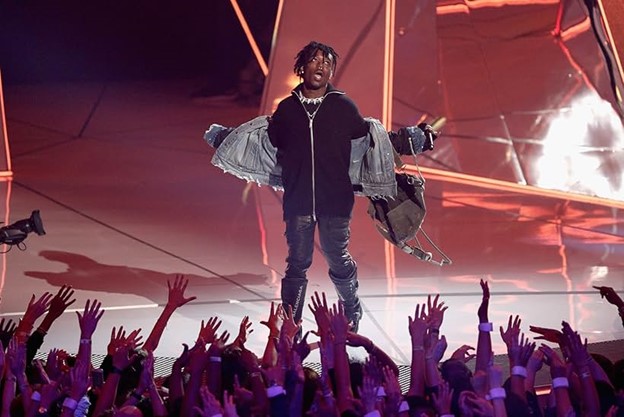
Like many comic book fans, I was ecstatic for the launch of Marvel’s “Jessica Jones” Netflix original series last week. Following the titular hard-drinking, bar-fighting, super-strong former super heroine as she attempts to run a successful private detective agency, the series is set in the same Marvel Cinematic Universe as the comic company’s blockbuster films, alongside its other Netflix original series, “Daredevil.” Starting the series, I was most excited to see how the show would expand upon the gritty, grounded world of Hell’s Kitchen, New York, and set the stage for future superhero escapades, like the upcoming “Luke Cage” and “Iron Fist.”
To my pleasant surprise, “Jessica Jones” did this in spades – and did so in a way that didn’t’t shy away from heavy, relevant subjects like substance abuse and sexual assault. While it can be easy to paint the Marvel films and shows as no more than pulpy box-office entertainment, “Jessica Jones” proves that comic book characters and stories are an effective and captivating way to confront our society’s most important issues.
The linchpin of “Jessica Jones’” thematic and narrative progression is focused on the titular character’s relationship with the villain known only as Kilgrave, portrayed by David Tennant in perhaps the best performance of his career. Adapted from a character from the comic book source material known as Purple Man, Kilgrave has the unique ability to verbally compel people to do whatever he wishes – from giving him their material possessions to killing themselves or others. Jessica was under Kilgrave’s control at one point, but escapes before the events of the show, believing him to be dead. His maniacal reappearance, and her attempt to defeat him and free herself once and for all, form the events of the show.
While the plotline leaves plenty of room for super-powered action – one memorable scene involves Luke Cage, Jessica’s perennial flame and known man with unbreakable skin, taking a rotary saw to his bare abdomen to prove his durability – I found myself drawn in even further by the mature, frank and gut-wrenchingly realistic handling of heavy subjects like mental illness and rape. Over the course of the show, Jessica suffers from post-traumatic stress disorder begat from her time as Kilgrave’s unwilling muscle and companion. She drinks and pushes her friends away, not only because of the violence Kilgrave inflicted upon her, but because she is afraid she might repeat the violence she committed while under his control. She is a wounded, damaged, wholly fleshed out female character, and her rape is never exploited for shock value or sympathy. Her struggle, drenched in the trappings of the noir genre as it is, is unflinchingly real, and the show’s means of representing the impact of her PTSD is critical to the narrative. Just like anyone who suffers from an anxiety disorder, Jessica’s PTSD controls her decisions and her life, and only by opening up to her loved ones and letting them help her can she overcome it. The show represents mental illness as well as conversations about rape and consent in an honest, constructive way and Jessica’s story from the comics succeeds in this where so many original narratives have failed.
Kilgrave himself is a complex villain, in some ways even more than “Daredevil’s” Kingpin, and while the show could take the easy route and turn him into a wholly corrupt monster, the way it handles his own traumatic history makes him sympathetic even as he manipulates and obsesses over Jessica. What’s more, the show does all of this not at the expense of the comic book elements, but rather in tandem with them; lurking in the background of the main plot lays a mysterious organization known only as IGH. A cursory Google search reveals that comics fans are going wild with speculation over this mystery, with many drawing connections to the super-powered Inhumans or even the Weapon X program. Even within the plot, Kilgrave’s nefarious abilities take an obsessive bent, grounding his villainous behavior in an unrequited love for Jessica and a desire for fulfillment. Kilgrave is just as mentally unwell and unnerving as any stalker in the real world – the fact that he can control minds is merely the icing on the cake.
The idea that comic book characters and stories are only summer blockbuster bait is a relatively recent invention. Ever since the beginning of the modern comics industry in the 1930s and 40s with characters like Captain America and Superman, comics have served a political and social purpose. Today, comic-inspired series like “Jessica Jones” prove that these characters can expand outside of their original context and give a voice to some of the most complex, difficult topics in mainstream discourse. It proves that superhero action and thoughtful, mature social commentary are not mutually exclusive.
Johnny McCabe is a Collegian columnist and can be reached at [email protected].


















